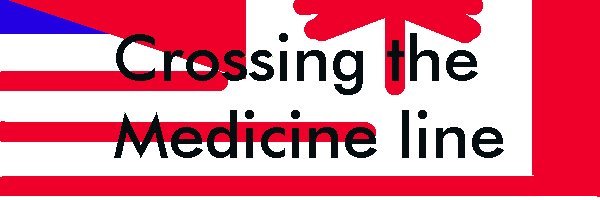

Almost six months have gone by since the voters of Florida, with a little help from the Supreme Court, elected George W. Bush. As a Canadian, I have no intention of gloating over the technical glitches which made that election interesting; a close election will bring out the same cheerful chicanery anywhere in the world. However, the recent American election does point up some issues of scale, and those issues (once more) cause me to call for two cheers for the sovereign nation.
Every now and then, someone asks why Canadians bother with having a country. What good can a border do by separating two countries so profoundly allied, so economically intertwined, and so culturally similar?
In the past, Canadians have replied that Canada and the United States do not have as many cultural similarities as people think. In a past Medicine Line, I have argued that having two countries means that most citizens of both can choose a different vision of the "good society". I think that means the border helps keep us free.
The recent American election has highlighted another reason to celebrate the border. This has nothing to do with the people who won the election, or the way American officials conducted it, or even the way the final resolution came via the US Supreme Court. Rather, it has to do with the scale of the election. The month of suspense Americans endured, waiting for a resolution to the Florida vote, and the sheer volume of ballots involved, showed clearly the the problems that inevitably come with scale in any system of representative democracy. Consider: each member of the House of Representatives must communicate the concerns of roughly half a million people, two Senators must address the concerns of as many as thirty million people, and one President represents a quarter billion people.
In a government where each politician represents so many people, the average politician can never meet the vast majority of their constituents, much less give a serious or thoughtful hearing to their concerns. Focus groups, advertisers, and public relations must replace personal contact. To actually make a personal case to their representative, Americans must possess considerable determination, and in many case considerable personal resources.
Many of the issues which currently trouble the American political system, from campaign finance and "soft money" to alienation from the central government in some parts of the United States, stem from this problem: representative democracies simply cannot grow indefinitely. Either the legislature must increase in size until it turns into a football stadium with votes, or the number of people each representative must attend to will grow, until "constituency" changes from a group of people to a collection of focus groups.
Until the Civil War, the United States solved this problem with federalism; the central government may have seemed distant, but it also meddled very little in people's day to day lives. Unfortunately, this compromise did not survive the insistence of some influential Southerners on preserving slavery. As Abraham Lincoln rightly said, a nation cannot exist without a moral center. A few men who would give up their country and the ideal of freedom it claimed to embody, in order to to keep slaves, made it necessary for the federal government to enforce this moral center. Since that time, the ideal of federalism in the United States has yet to recover the balance between the need for a central moral principle, and the need for government to operate at a human scale.
On one hand, the American federal government seems powerless to compel state governments to respect the Vienna convention on consular relations. Several American states have convicted foreigners on capital charges without informing them of their right to contact the consular officials of their home countries, as the convention requires. Protests by the Secretary of State, saying that such proceedings undermine the rights Americans abroad depend on, have apparently fallen on deaf ears. On the other hand, Congress seems unwilling or unable to set any limits on their urge to tax the citizens, then hand the money back to state governments with lots of strings attached. Consider the former "national" 55 speed limit, or the current "national" drinking age of 21, and the recent passage of "Aimee's law", which punishes state governments for granting parole to certain offenders. Whatever the merits of any of these laws, they effectively transfer power from state and local governments, which can at least hope to operate in close touch with their constituents, to the federal government.
Since we can't scale representative democracy to fit the entire population of the world, and nobody has yet come up with a model of federalism that balances the need for a moral center with effective, reachable, and accountable local governance, that leaves no choice to give one or two cheers for the infuriating but essential invention: the sovereign nation, and its defining attribute: the border.
To Americans, the medicine line means thirty million people, mostly believers in socialised medicine, with whom you do not have to share your votes for Congress and the Senate. For Canadians, it means a Parliament with members who actually appear on our doorsteps from time to time to ask for our votes. Even if Canada and the United States have no other distinctions, historical, cultural, or political, even if we could weld ourselves into a single country with no difficulty, the problems of scale in a representative democracy give us some very good reasons not to.
And for that, I say three cheers: one cheer for Canada, one cheer for the United States, and one cheer for the border that separates us.
John Spragge is president of Dancing Cat Software of Ann Arbor Michigan. His Medicine Line columns appear from time to time in the Ethical Spectacle.